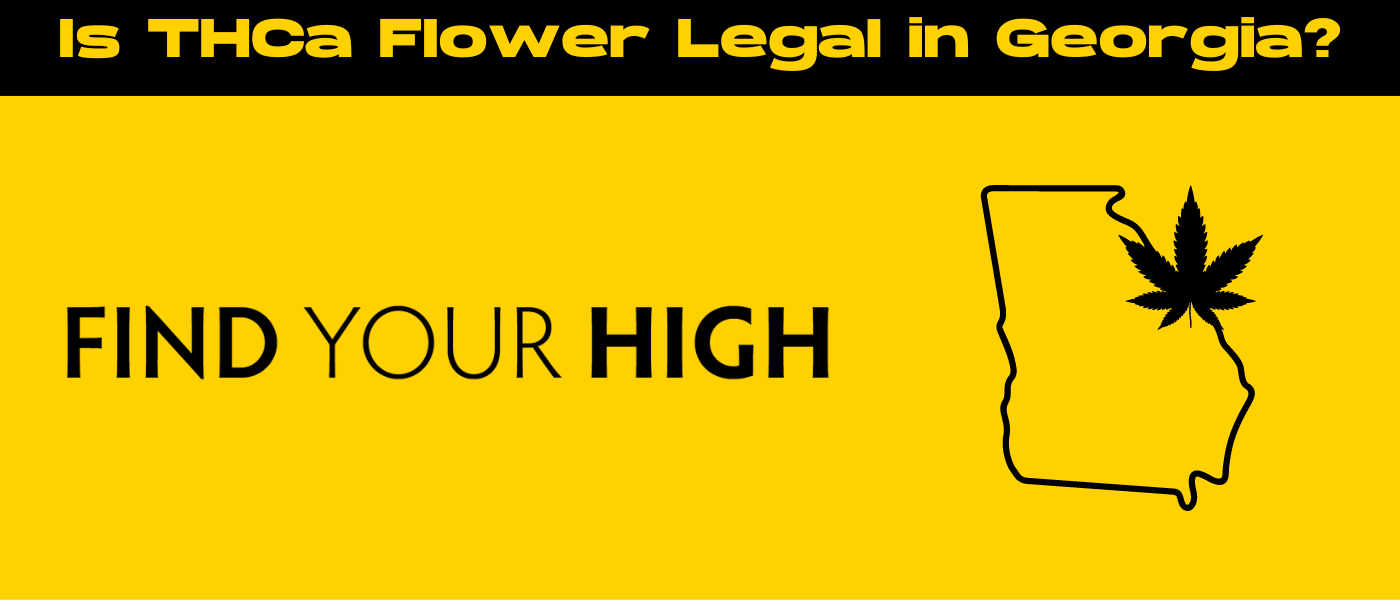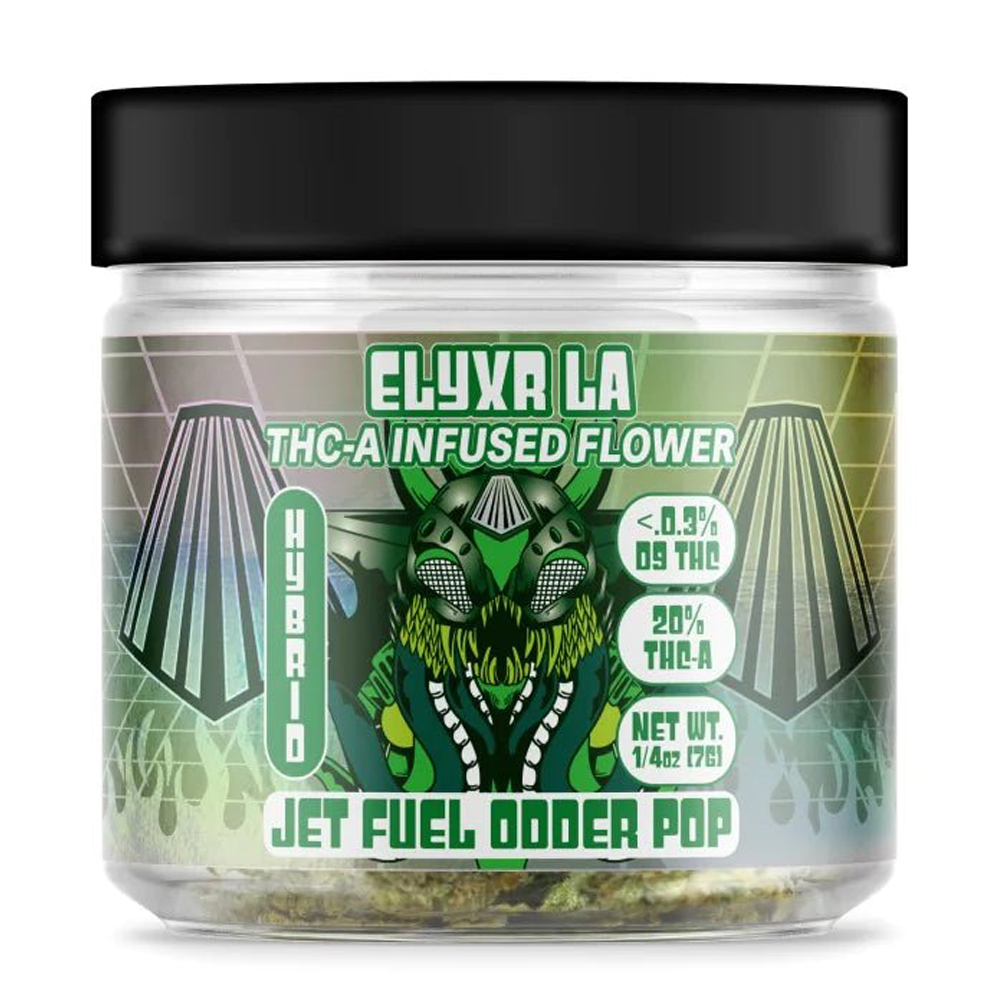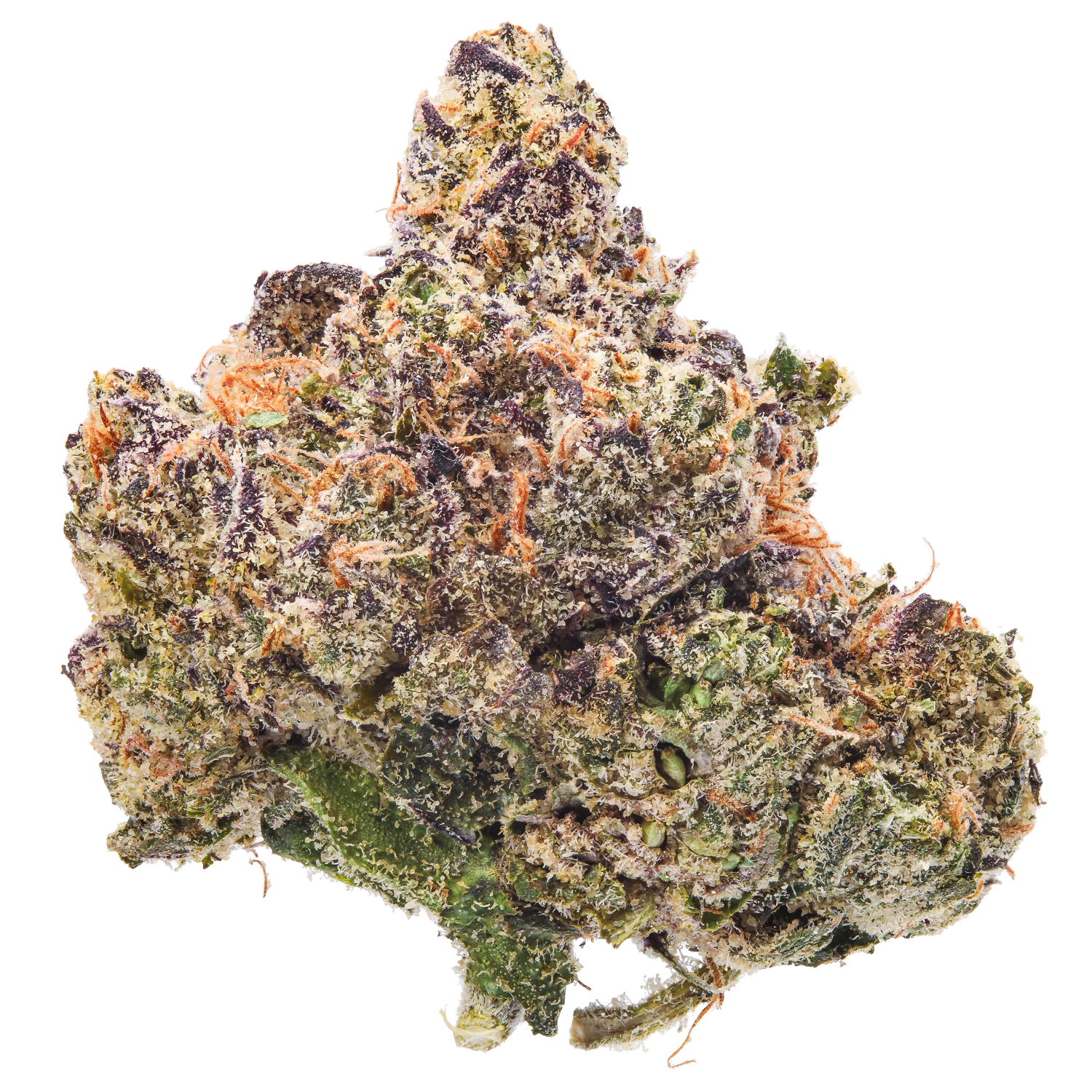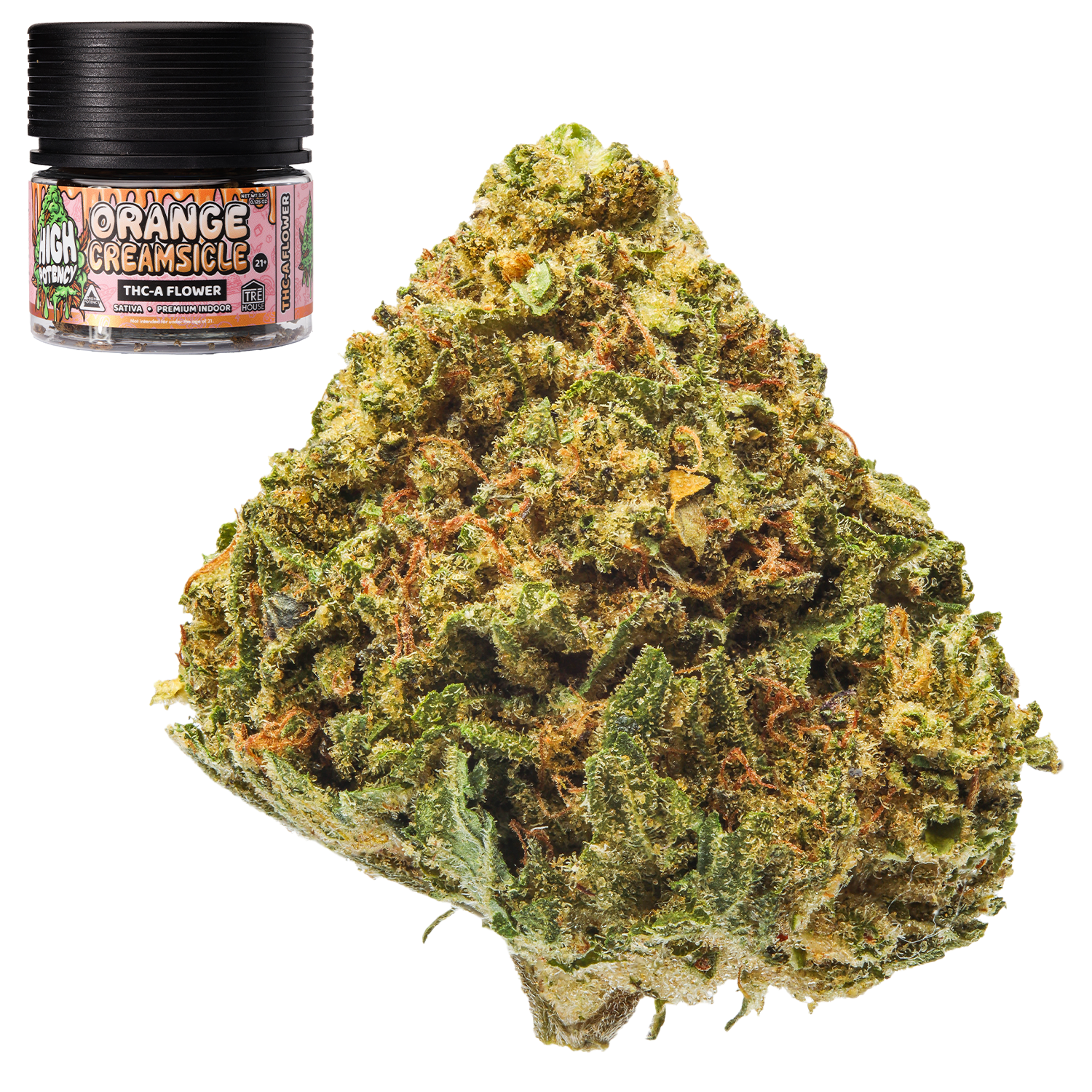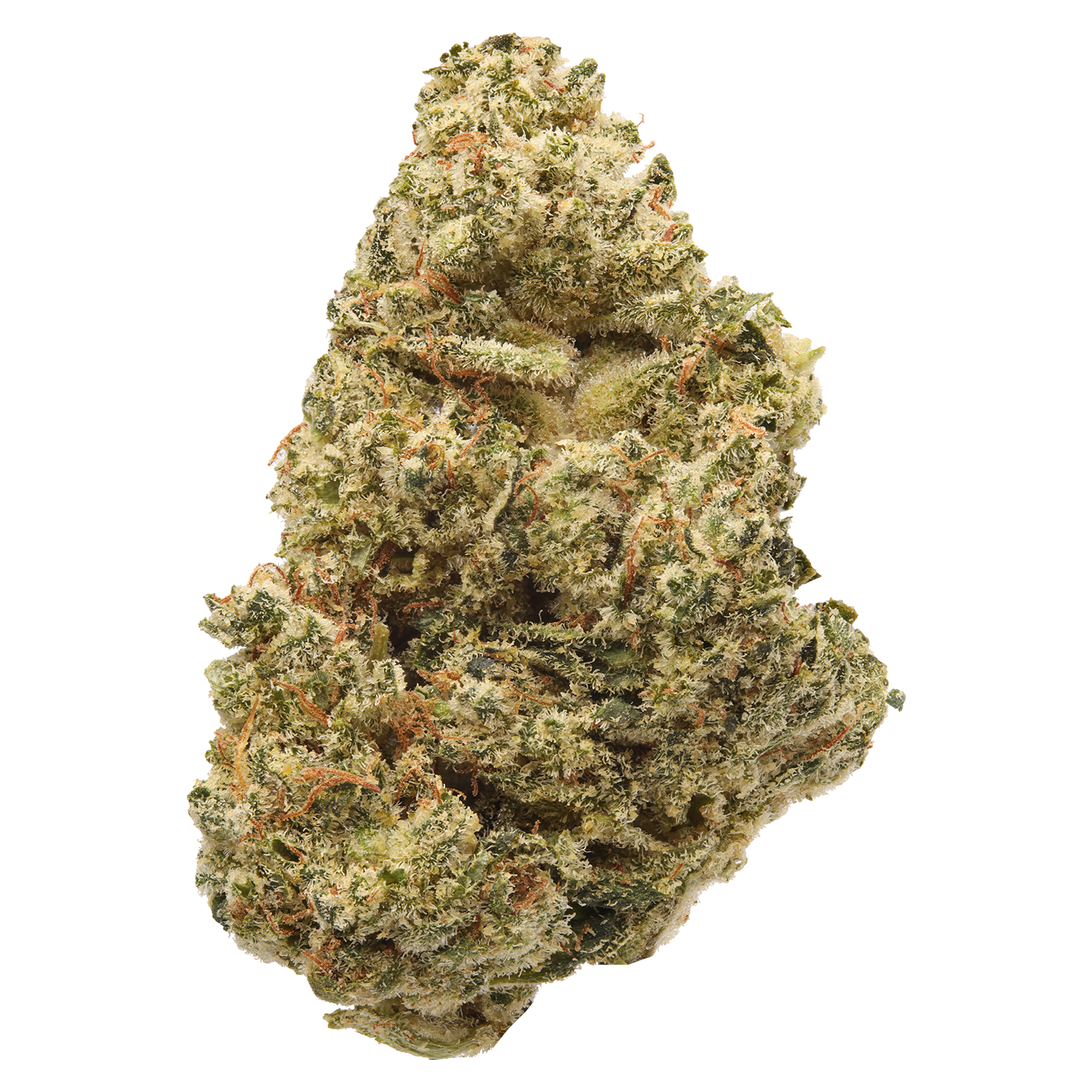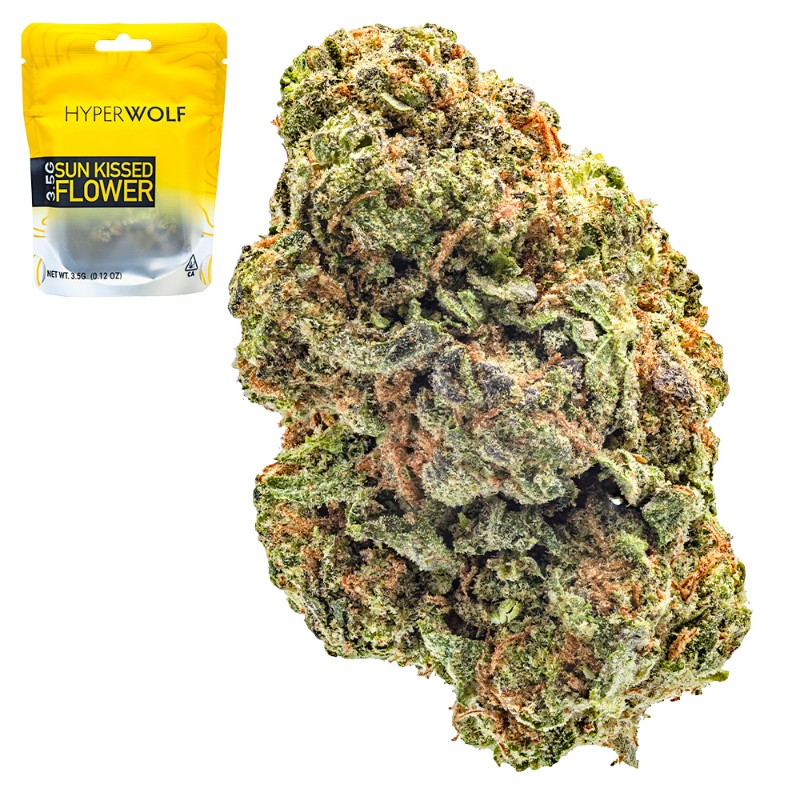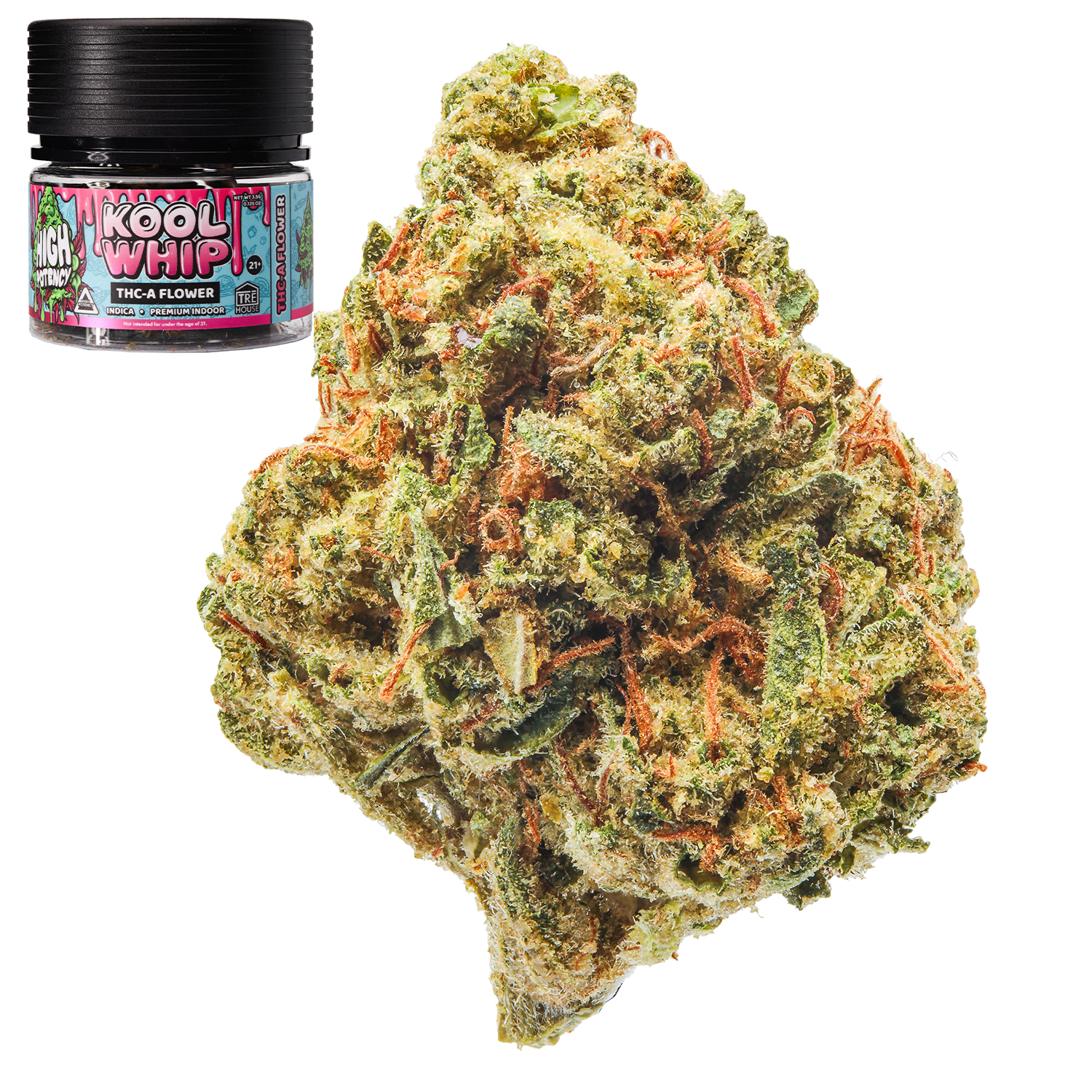Cannabis laws can be a confusing maze, especially when it comes to emerging products like THCa flower. As hemp-derived products like CBD gain popularity, new compounds are being explored for their potential benefits and federal permissibility. But with cannabis still in a legal gray area in many states, it’s essential to understand the nuances of legality, particularly in Georgia.
So, is THCa flower legal in Georgia? Let’s dive into everything you need to know about this product, its legal status in Georgia, and the potential risks and benefits.
What Is THCa Flower?
Before we can discuss whether hemp-derived THCa flower is legal in Georgia, let’s first break down what THCa is and how it works.
The Basics of THCa
THCa (tetrahydrocannabinolic acid) is a cannabinoid found in cannabis plants. Unlike THC, its more famous counterpart, THCa is non-psychoactive. That means it doesn’t get you high.
However, when THCa flower is heated—by smoking, vaping, or cooking—it undergoes a process called decarboxylation, where it converts into THC, the compound that produces the typical cannabis “high.”
THCa vs. THC: What’s the Difference?
While THCa and THC are chemically similar, their effects on the body are drastically different. THCa doesn’t produce any intoxicating effects until it’s activated by heat. On the other hand, THC binds to the brain’s CB1 receptors, leading to the euphoric feeling most cannabis users are familiar with.
Georgia’s Cannabis Laws: A Quick Overview
To understand whether THCa flower is legal in Georgia, it’s important to first understand the state’s cannabis laws.
Current Cannabis Laws in Georgia
Georgia has had a complicated relationship with cannabis. While recreational cannabis remains illegal, the state has made strides in its medical marijuana program and with hemp-derived cannabinoids.
Under Georgia law, cannabis is classified as a member among the Schedule I controlled substances, which means it’s illegal for general use. However, there are exceptions for those who qualify for medical marijuana.
Georgia’s Medical Marijuana Program
Georgia’s medical marijuana program allows qualifying patients with conditions like epilepsy or cancer to legally possess low-THC cannabis oil (less than 5% THC). This program was established in 2015 with the passing of the Haleigh’s Hope Act, but it remains limited to specific medical conditions, and it only covers THC oils, not whole cannabis flowers.
What About Recreational Cannabis?
Recreational cannabis is still illegal in Georgia, and despite some ongoing debates and proposals to change the law, there has been little movement toward legalization. So, what does this mean for THCa flower, a product that’s somewhat in the middle of the cannabis debate?
Is THCa Flower Legal in Georgia?
Now that we have a foundation of Georgia’s cannabis laws, let’s focus specifically on the legality of THCa flower.
The Legal Gray Area
THCa flower exists in a legal gray area in Georgia. While THCa itself is not specifically listed as a controlled substance, its close relationship to THC complicates things.
The main issue is that THCa can easily be converted into THC when heated. This potential for conversion is a key reason why THCa flower could be problematic from a legal perspective.
Why Is THCa Flower So Confusing?
The confusion around THCa flower’s legality stems from how it behaves when consumed. Because THCa doesn’t have psychoactive effects unless heated, some believe it should be treated as a hemp product—especially if it contains less than 0.3% THC. After all, under the 2018 Farm Bill, hemp-derived products with less than 0.3% THC are federally legal.
Legal Precedents and Law Enforcement
So far, there haven’t been major legal precedents in Georgia specifically addressing THCa flower.
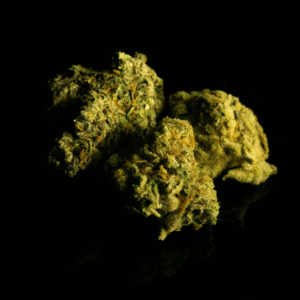
Federal vs. State Law: How Does It Affect THCa Flower?
While Georgia’s state laws play a significant role, federal law also impacts the legality of THCa flower in the state.
Federal Hemp Legalization
The 2018 Farm Bill and Georgia Hemp Farming Act legalized hemp at the federal level, provided it contains less than 0.3% THC.
This legislation opened the door for hemp-derived products like CBD to be sold nationwide. But the bill doesn’t specifically address THCa flower, leaving this cannabinoid as a legal loophole in regards to federal legalization.
The Challenge of State Regulation
Though hemp flower is legal under federal law, each state can still regulate how hemp and cannabis products are sold and consumed. In Georgia, where THC remains illegal outside of the medical marijuana program, the state’s strict cannabis laws make it less clear whether THCa products are permissible.
For now, THCa flower could be viewed as either a legal hemp product or an illegal cannabis product, depending on interpretation. This creates confusion for both consumers and law enforcement.
The Science Behind THCa: Why It Matters
To understand the legal status of THCa flower, it’s helpful to take a closer look at the science behind how it works.
What Happens When THCa Is Heated?
When cannabis is heated—whether through smoking, vaping, or cooking—the THCa molecule loses a carboxyl group, turning into THC. This is why consuming THCa flower via traditional methods (like smoking) results in the psychoactive effects of THC.
Until heated, however, THCa itself does not produce any noticeable effects on the body.
Why Is THCa Non-Psychoactive?
The reason THCa doesn’t get you high is that it doesn’t interact with the brain’s cannabinoid receptors in the same way THC does.
Without decarboxylation (heating), THCa remains biologically inactive in terms of producing intoxication. This non-psychoactive nature is what has attracted many consumers who want the potential benefits of cannabis without the high.
Health Benefits of THCa
While research is still in its early stages, some studies suggest that THCa may have therapeutic benefits, such as:
- Anti-inflammatory effects
- Neuroprotective properties
- Anti-nausea qualities
These potential health benefits are why some consumers turn to THCa flower, hoping for relief without the risks of legal complications surrounding THC.
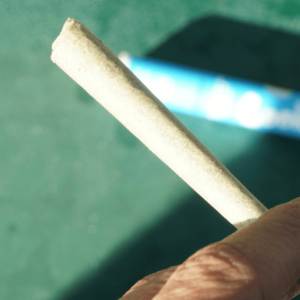
Risks and Concerns of THCa Flower
Despite the promising potential of THCa, there are some risks to consider, both from a health and a legal standpoint.
Risk of Misuse
Since THCa can convert into THC when heated, there’s a potential for misuse. Some people may use THCa flower as a way to bypass restrictions on THC. This could lead to legal issues, especially in a state like Georgia, where THC is still highly regulated.
Health Concerns
While THCa itself is non-psychoactive, consuming it improperly or in large quantities may still pose health risks, particularly if it leads to unintended psychoactive effects when heated. As THCa flower isn’t regulated like other cannabis products, there is a concern about consistency and purity, which could result in unintended side effects.
Alternatives to THCa Flower in Georgia
If THCa flower is too risky or unavailable in Georgia, what are the legal alternatives?
Low-THC Products in Georgia
Georgia has legalized certain low-THC products through its medical marijuana program. These are limited to oils and tinctures that contain less than 5% THC. If you’re looking for a legal cannabis option in Georgia, these low-THC products may be a safer choice.
CBD Products
For those seeking the benefits of cannabis without the high, CBD is a widely available alternative. CBD products made from hemp are legal under both federal and Georgia law, as long as they contain less than 0.3% THC.
States with Legal THCa Flower
If you’re in a state where cannabis is fully legalized, such as California or Colorado, you may find that THCa flower is sold more freely. These states have clearer regulations and are more likely to allow products like THCa flower.
Conclusion: Is THCa flower legal in Georgia?
In conclusion, THCa flower is legal in Georgia under current federal laws. While its non-psychoactive nature distinguishes it from traditional cannabis, the flower remains lawful because it does not contain significant levels of Delta-9 THC, the compound that triggers psychoactive effects.
However, due to the potential for THCa to convert into THC through decarboxylation, there may still be some confusion about its status. As of now, there are no specific regulations in Georgia that prohibit THCa flower, and it is generally accepted within the state’s legal framework.
If you’re in Georgia and considering using THCa flower, it’s important to stay informed as cannabis laws continue to evolve. Georgia may provide further clarification in the future, but for now, THCa flower can be used legally. For those who prefer more established alternatives, low-THC oils or CBD products remain solid, legally recognized options.
As always, it’s advisable to stay updated on legal developments and consult legal experts if you’re unsure about any cannabis-related product.
Frequently Asked Questions
1. Is THCa illegal in Georgia now?
No, THCa is not illegal in Georgia. As of now, THCa flower is legal for hemp retailers to sell in the state because it does not contain significant levels of Delta-9 THC, the compound responsible for psychoactive effects. However, THCa has the potential to convert into THC through decarboxylation (heating), which may cause confusion. It’s important to stay informed, as cannabis laws can evolve.
2. Is THCa flower federally legal?
Yes, THCa flower is federally legal under the 2018 Farm Bill, as long as it contains less than 0.3% Delta-9 THC by dry weight. Though THCa and federal law can be complicated, the Farm Bill legalized hemp-derived products, including THCa, as long as they do not exceed the legal THC threshold. However, individual states may have their own regulations, so it’s important to check state-specific laws before purchasing or using THCa products.
3. What is the THCa Farm Bill in Georgia?
Georgia follows the federal 2018 Farm Bill, which legalized hemp-derived products, including THCa flower, as long as they contain less than 0.3% Delta-9 THC by dry weight. In Georgia, the sale and use of THCa flower is permitted under the same conditions. However, the state’s cannabis laws remain evolving, and it’s wise to stay up to date with any changes in state-specific regulations.
4. Does THCa get you high?
No, THCa does not get you high in its raw, unheated form. THCa is non-psychoactive, meaning it does not produce the intoxicating effects commonly associated with THC. However, when THCa is heated (such as through smoking or vaping), it undergoes decarboxylation and converts into Delta-9 THC, which can cause a high.
5. Is THCa legal?
Yes, THCa is legal at both the federal and state levels in many areas, including Georgia, as long as it meets certain conditions. Under the 2018 Farm Bill, hemp-derived products containing less than 0.3% Delta-9 THC are federally legal, which includes THCa flower. However, THCa can convert to THC when heated, which can complicate its legal status in certain situations. Always check your local state laws, as cannabis regulations and THCa possession limits are subject to change and may vary from one jurisdiction to another.




